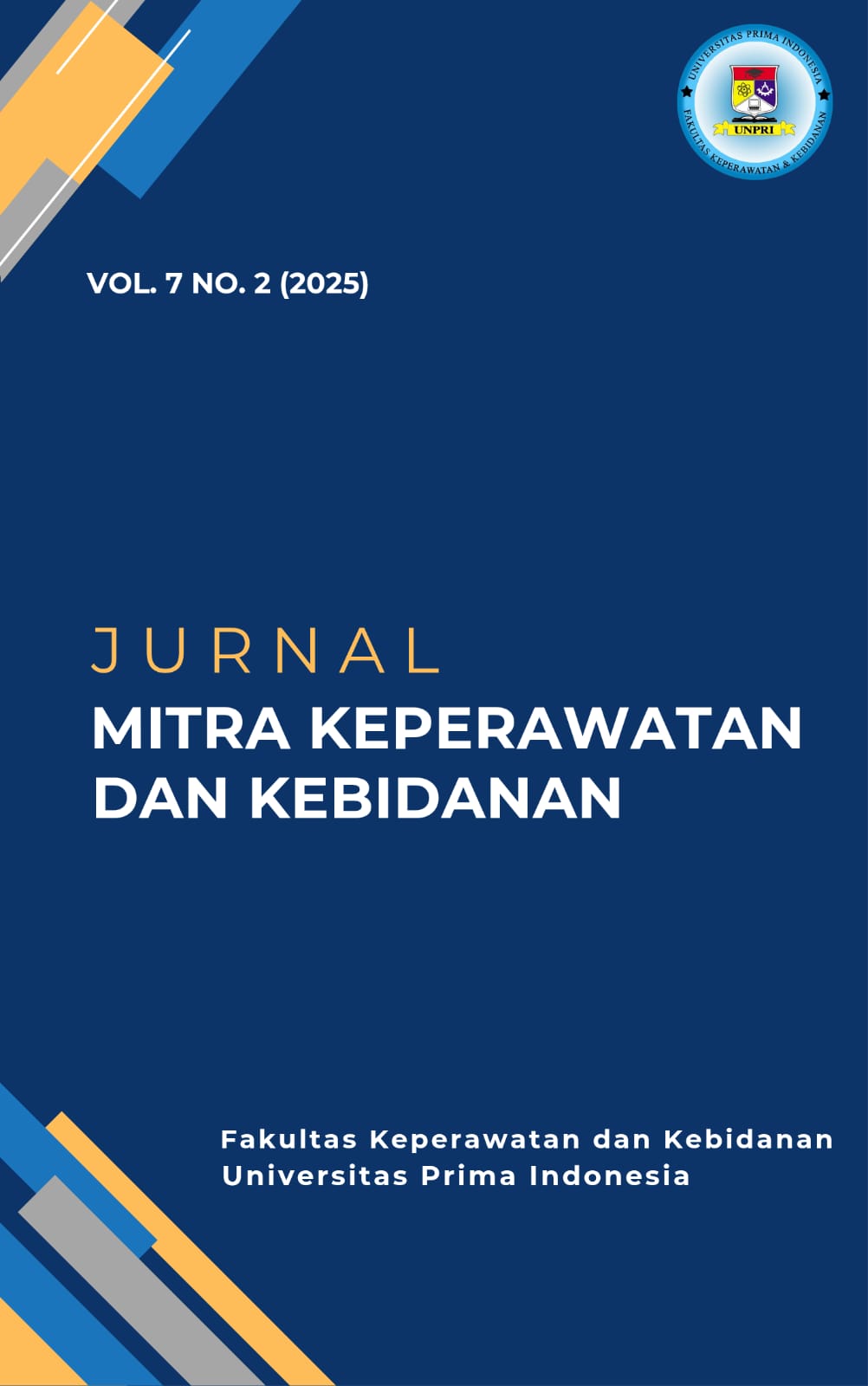Gambaran Kualitas Hidup Pasien dengan Diabetes Melitus Tipe 2 di Rumah Sakit Umum Royal Prima Medan
##plugins.themes.academic_pro.article.main##
Abstract
Type 2 Diabetes Mellitus (T2DM) is a chronic metabolic disorder characterized by hyperglycemia and insulin resistance, with a prevalence that continues to increase globally and nationally. In Indonesia, the prevalence of diabetes has shown a steady upward trend, and Medan City is among the regions with a significant burden, where recent local health reports indicated that diabetes cases accounted for approximately 31.4% of non-communicable diseases in 2022. RSU Royal Prima Medan, as one of the main referral hospitals for T2DM management, receives a large number of patients, many of whom present with complications that adversely affect their quality of life. This study aimed to describe the quality of life among T2DM patients at RSU Royal Prima Medan. A descriptive design was employed involving 35 respondents diagnosed with T2DM, assessed using the Diabetes Quality of Life Clinical Trial Questionnaire (DQLCTQ), and analyzed through univariate methods. The findings showed that only 31.4% of respondents had a good quality of life (score > 60), while 68.6% reported a poor quality of life (score < 60). The lowest mean scores were observed in the domains of treatment effect, health distress, physical function, energy, personal health perception, and symptom frequency. These results indicate that most patients with T2DM in this setting have suboptimal quality of life. Strengthening patient education, encouraging regular medical consultations, promoting light physical activity, managing stress with family support, and fostering early symptom recognition are essential strategies to improve their overall well-being.

